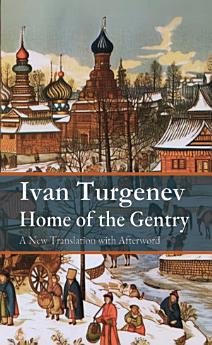Home of the Gentry
O ovoj e-knjizi
Beyond its simple narrative, Home of the Gentry can be seen as an exploration of Turgenev's personal struggle with his identity as a Russian expatriate. Like Lavretsky, Turgenev spent much of his life abroad, often torn between his admiration for Western Europe and his deep attachment to his homeland. The novel's detailed exploration of Lavretsky's sense of loss and disillusionment mirrors Turgenev's own feelings of alienation from Russia, especially as the country underwent rapid political and social change.
Home of the Gentry is a subtle criticism of Russian society, especially the aristocracy. The novel portrays a gentry class nostalgic for the past but impotent in the face of modern realities. Lavretsky's emotional crisis is emblematic of the broader crisis of the Russian nobility, who, like him, are caught between tradition and the inevitable march of progress. Through his portrayal of Lavretsky and Liza, Turgenev explores the emotional consequences of a society out of step with the changing world around it, offering a poignant reflection on the limits of personal and social transformation in mid-nineteenth-century Russia.
This critical reader's edition presents a modern translation of the original manuscript, crafted to help the reader engage directly with Turgenev's works through clean, contemporary language and simplified sentence structures that clarify his complex ideas. Supplementary material enriches the text with autobiographical, historical, and linguistic context, including an afterword on Turgenev’s history, impact, and intellectual legacy highlighting the personal relationships that shaped his philosophy (focusing on Dostoevsky, Tolstoy and Gogol), an index of the philosophical concepts he employs (emphasizing Realism and Nihilism) a comprehensive chronological list of his published writings, a brief biography, and a detailed timeline of his life.











